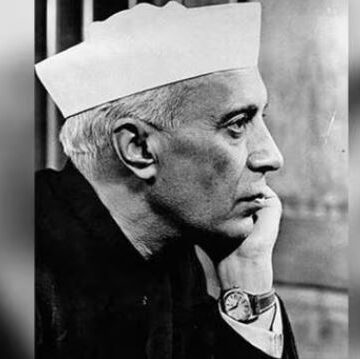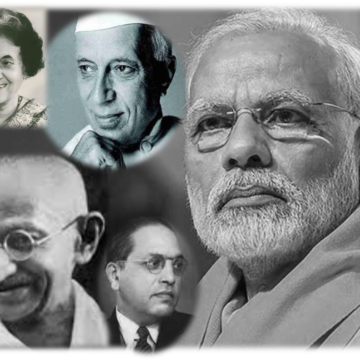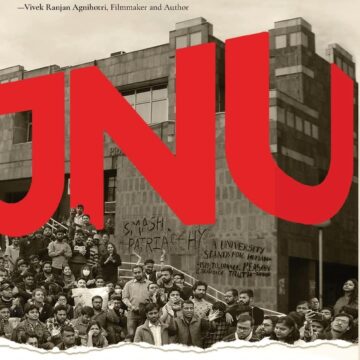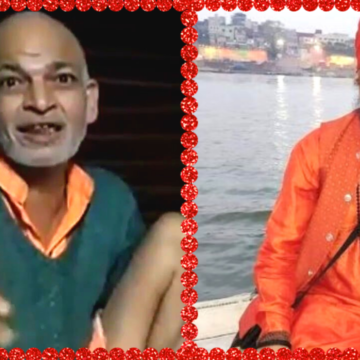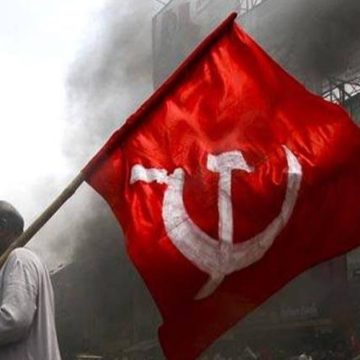Sita Ram Goel's "Perversion of India’s Political Parlance" is an in-depth analysis of how political language in India has been twisted to serve ideological agendas. Goel critiques the selective use of terms like "secularism" to marginalize Hindu cultural identity while elevating leftist and Islamic narratives. By unraveling these linguistic distortions, the book challenges readers to reflect on the profound impact of words in shaping national identity and political discourse.
Tag: Politics
Nehru and Kashmir: A Relationship with Disruptive Consequences
Were Nehru's myopic decisions solely blunders or were they influenced by his personal friendships with the last British Governor-General Lord Mountbatten and the first CM of J&K Sheikh Abdullah? Jahnavi Naik explores in this article.
The Curious Case of Hero Worship
The concept and popularity of hero worship is as old as time. Who then, can be classified as a hero? Are heroes born or created? Can hero worship endure long after the hero is gone?
Anshul Kalia explores all this, with special emphasis on the propensity of the Indian populace to hero-worship political leaders.
The Significance of the Bhakt and Bhakti in Hinduism
Bhakti, as a profound spiritual path within Hinduism, encompasses the deep love, devotion, and surrender to the divine. While the term "Bhakt" has gained popularity in political contexts, its use as a label for followers of a particular leader is objectionable as it trivializes the spiritual essence of Bhakti.
Understanding Political Systems Of India – Part 3 – Indigenous Political Thinking In Ancient And Modern India
"Western polity conceives of doing away with political parties and creating governments of national unity only in times of war or crisis; India, because of her long tradition of a unity underlying her diversity, should have shown that unity is not a freak phenomenon but a workable basis for new politics."
The current political and social systems being followed in India remain wedded to the older British structures. Concepts such as uncoupling of state and religion, secularism et al are based in Judeo-Christian theology; and where it is not available, these become radically unintelligible.
In the third installment of the series titled "Understanding Political Systems Of India", Dr. Pingali Gopal shares his findings from his study of ancient Indian thinkers such as Kautilya, and modern thinkers such as Sri Aurobindo, and Ananda Coomaraswamy, a Sri Lankan Tamil philosopher with a deep understanding of Indian culture.
Enlightened monarchies, free citizens, and decentralised political units glued together by spiritual and cultural unity were the essence of political India in the past. Following independence, India’s attempt at decolonization was less than half-hearted; and thinkers such as Sri Aurobindo were categorically ignored.
Understanding Political Systems Of India – Part 2 – The Political Trajectory Of Post-Independent India
"Much of today’s normative ‘liberal democracy’ has clear theological roots and may not make sense outside the Western world. Universalising and secularising a theological theme may be problematic when applied to Indian culture. Independent India, ignoring indigenous political philosophy, inherited Western values, creating a story of contradictions clashing with the intensely traditional society of India."
In the second installment of the series titled "Understanding Political Systems Of India", Dr. Pingali Gopal brings us a summary of essays of Professor Bhikhu Parekh where he assesses post-Independent Nehruvian India.
Jawaharlal Nehru, Prime Minister from 1947 to 1964, constantly looked at the West as a template for India’s future, rejecting the indigenous past. The article analyses the effects of implementation of Western political thought and primarily British laws in the Indian society which wasn't structured the same way as the West. When implemented in India, the institutions of Western law encourage just the opposite of what such laws are meant to do: a vengeful, spiteful, and ‘selfish’ citizenry. Instead of promoting a cohesive society, such laws encourage divisiveness and conflict in society.
Understanding Political Systems Of India – Part 1 – Political Ideologies – A Dummy’s Understanding of Background Western Theories
"The political spectrum teaches absurdly that opposites are the same. The two ‘positions’ - Left and Right - are the mixing of incoherent, unrelated, and constantly shifting ideas lumped together by the accident of history. Aggressive military positioning hardly connects to a free-market philosophy. Defenders acknowledge this variation but claim an underlying essence: the Right (conservatives), ‘backward looking’, want to conserve; the Left (progressives), ‘forward looking,' want change. Both wings' policies, in fact, are ‘backward-looking’ and marked by nostalgia, depending on the issue."
In the first installment of the series titled "Understanding Political Systems Of India", Dr. Pingali Gopal analyses the multiple prevalent political systems and ideologies of the West, that define world politics as we know it today. These systems have been allowed to influence Indian politics and policy making after independence, with complete disregard to the ancient political systems of India.
The broad classification of political ideology as Right or Left is nebulous at best - one can falsify every proposed essence of right or left, which shows us that ideologies are nothing but social constructs. these Right-Left political ideas do not make sense either in the Western context or in the Indian context, and yet, for decades, we have held on to them. We need to understand our past political systems better, and we need to transcend the paradigm.
JNU – Nationalism and India’s Uncivil War by Makarand Paranjape – A Review
Rohan Raghav Sharma reviews Dr. Makarand Paranjape's book titled: "JNU - Nationalism and India's Uncivil War"; while analysing the happenings in JNU that led to the events detailed in the book. He also questions Dr. Paranjape's optimism and suggestions for handling the university moving forward.
The Palghar Resolve
One wonders if the sacrifice of our sadhus is what it might take to shake Hindu society from its slumber.
Perversion of India’s political parlance – Part 2
Hindus have not learned to counter imperialist language in its various forms, be it Islamic, Christian or Communist.


